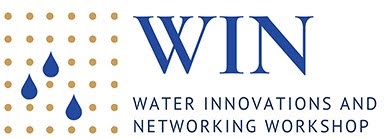NAWI hosted a delegation from the Saline Water Conversion Corporation (SWCC) In late January, led by SWCC Governor H.E. Abdullah Al Abdulkariem. The SWCC is a Saudi governmental institution mandated and entrusted with seawater desalination and the delivery of desalinated water to various regions of the Kingdom of Saudi Arabia and beyond. SWCC’s leadership visited the United States to forge new strategic alliances, bolster the supply chain, and promote the localization of manufacturing for both the KSA market and nearby regions like Egypt, Oman, and the UAE. Their objectives included identifying investment opportunities, establishing joint-venture partnerships, and enhancing research and development collaborations globally.
The SWCC team kicked off the week in Houston, Texas, engaging with industry leaders including Bechtel, Jacobs, Aris Water, Oxy, and Texas A&M University. They also toured Memstar’s RO membrane manufacturing plant in Conroe, Texas.
Next, they attended a one-day desalination technology innovation forum in Palo Alto, the “Birthplace of Silicon Valley.” Hosted by the National Alliance for Water Innovation (NAWI) and led by Dr. Peter Fiske, the event featured presentations from various technology startups. The SWCC delegation joined fifty invited participants in exploring cutting-edge advancements in desalination.
SWCC is moving to operate under the Petroleum Investment Fund (the sovereign wealth fund of the Kingdom of Saudi Arabia) as part of a larger reorganization across the government. This move will allow SWCC to move beyond its traditional role of developing and operating the desalination plants in Saudi Arabia into a larger role — one in which SWCC may develop projects outside of the Kingdom of Saudi Arabia, as well as make direct investments in emerging technologies in the water space.




